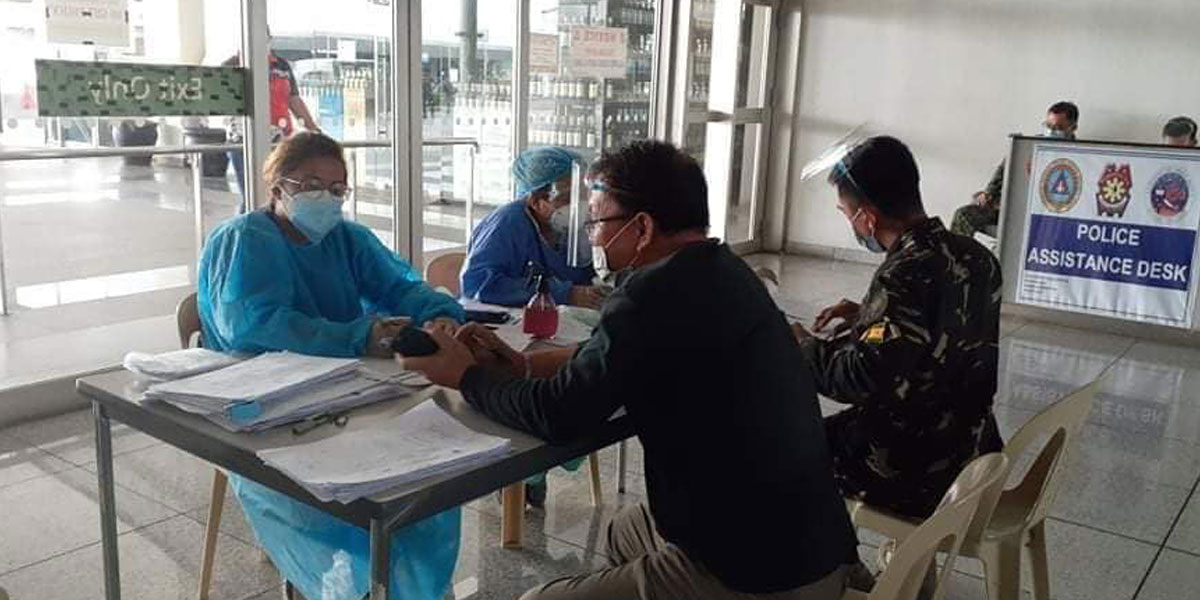
By Joseph B.A. Marzan
Despite the alarming emergence of a new strain of the coronavirus disease 2019 (COVID-19) in other countries, both Iloilo City Mayor Jerry Treñas and Iloilo Governor Arthur Defensor Jr. are holding off on any pronouncements refusing entry of Returning Overseas Filipinos (ROFs) from those areas.
In a text message to Daily Guardian, Treñas said that the city government’s COVID-19 Task Force has been actively monitoring the global developments surrounding this new strain of the coronavirus.
The city government has also placed medical technologists at the Iloilo International Airport in neighboring Cabatuan town to test arriving local and foreign repatriates.
The mayor said he was not considering refusing the entry of ROFs, placing confidence in their current stance of active monitoring.
“Right now, we keep going. We have medtechs at the airport and we test everyone. At the moment, no [ban on ROFs]. We are very watchful and make sure we know the cases every day,” the mayor said in a text message.
Defensor told Daily Guardian in a phone interview that the provincial government has also been monitoring the developments on the new strain.
He added, however, that according to the Department of Health-Western Visayas Center for Health Development (DOH-WV CHD) the region’s facilities are still not capable of detecting the new strain of the virus.
He said that it was the Philippine Genome Center in Manila that is monitoring if the new COVID-19 strain had entered the country.
The governor also shunned ideas of refusing ROF entry into the province, saying that they cannot stop ROFs from returning to the province unless stated by the national government.
“We cannot [stop ROF entries], because the national government has told us not to refuse the ROFs. Unless the national government mandates the closure of our borders or the international airports in Manila, they cannot enter. But when they do enter, we in Iloilo are obliged to accept them,” the governor said in a phone call.
This new strain is a variant of the Severe Acute Respiratory Syndrome-Corona Virus 2 (SARS-CoV-2), named by Public Health England as “Variant of Concern 202012/01” in its report dated Dec. 21, 2020.
This variant was first reported on Dec. 14 in Kent county just outside of the United Kingdom’s capital, London.
Data observed by the UK government’s New and Emerging Respiratory Virus Threats Advisory Group (NERVTAG) as of Dec. 18 indicated it was “likely” that this variant was more transmissible.
Since the first reports from the UK, confirmed cases of the new strain have also been reported in Australia, Japan, Israel, and Singapore.
On Dec. 30 (Dec. 31 in the Philippines), California Governor Gavin Newsom confirmed the first case of the new strain, one of the first cases reported on this development in the United States of America.
Due to these developments, many countries have banned or placed stricter restrictions for travellers from the UK and several other countries where cases of the new strain have been confirmed.
The DOH Central Office in a Dec. 26 press release stated that flights from the UK had been banned since 12:01 a.m. on Dec. 24.
This ran contrary to a pronouncement by DOH Secretary Francisco Duque on the same date during a meeting of the Inter-Agency Task Force on the Management of Emerging Infectious Diseases (IATF-MEID) he would not recommend a flight ban from the UK unless community transmission had been confirmed there.
Presidential spokesperson Herminio Roque Jr. later announced on Dec. 29 that flights to and from 19 countries had been banned due to COVID-19 surges and the emergence of the new strain.
These include Australia, Britain, Canada, Denmark, France, Germany, Hong Kong, Iceland, Ireland, Israel, Italy, Japan, Lebanon, the Netherlands, Singapore, South Africa, South Korea, Spain, Sweden and Switzerland, and the United Kingdom.





















